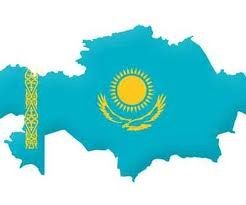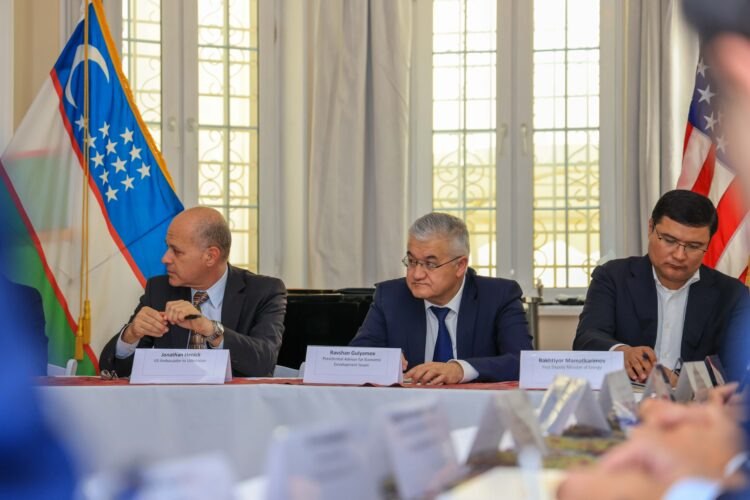ASTANA (TCA) — Kazakhstan’s efforts to expand cooperation with the US have caused irritation from Russia which seeks to keep its influence in the Central Asia region. We are republishing this article on the issue, originally published by Eurasianet:
Russia’s top diplomat has reportedly chided Kazakhstan over Astana’s decision to provide the U.S. military with logistical assistance for its operations in Afghanistan without first consulting Moscow.
Kommersant newspaper reported that during a June 11 meeting of officials from the Collective Security Treaty Organization, or CSTO, a Moscow-led analogue of NATO, Russian Foreign Minister Sergei Lavrov subjected his Kazakh counterpart, Kairat Abdrakhmanov, to a series of what the outlet called “uncomfortable questions.”
Lavrov apparently made his complaints in relation to a recent agreement for Kazakhstan to allow the United States to use two of its Caspian Sea ports, Aktau and Kuryk, as transit points for shipping strictly nonmilitary material to Afghanistan. He is also said to have complained about the appearance of a U.S.-funded structure in Almaty called the Central Reference Laboratory, which is designed to research contagious animal and human diseases.
Kommersant based its report on the revelations of an unnamed member of the Russian delegation at the CSTO meeting.
Moscow appears quietly discomfited by the perception of subtle progress by Washington in cementing its influence in the region. Recent high-profile visits to Washington by President Nursultan Nazarbayev and Uzbek leader Shavkat Mirziyoyev received the kind of coverage back home never afforded to trips to Russia, which are a dime a dozen.
The initiative to get an agreement on the use of the Caspian ports appears to have been a fillip by Nazarbayev’s meeting with President Donald Trump, who used the encounter to commend Astana for granting U.S. forces “continuous logistical support and access to Afghanistan.” Definitive approval for this arrangement was granted in May.
Kommersant’s diplomatic source described that agreement as an “unpleasant surprise.”
“There is no economic and logistical justification for this Caspian port route. We presume that the Americans needed it in order to maintain a presence on the Caspian, so that their infrastructure will appear here,” the source said.
The Russian official also complained that Kazakhstan not only failed to consult with Moscow on these plans, but that it didn’t even inform Russia.
There are a few problems with this claim. A legislative bill on granting the U.S. access to the Caspian ports for the purpose of delivering goods to Afghanistan was presented to Kazakhstan’s parliament in January and has been amply reported upon since that time. It took two months of discussion before that bill was approved and about the same period for Nazarbayev to give it his definitive thumbs-up. To describe this iteration as a surprise is stretching a point.
Abdrakhmanov reportedly stressed to Lavrov that none of this meant that the U.S. would gain a military foothold in Kazakhstan’s Caspian ports, but that does not appear to have convinced the Russian.
Objections to the Central Reference Laboratory, which has similarly U.S.-funded analogues in Armenia, Ukraine and Georgia, arguably make even less sense.
“Our security services and scientists are really worried by the appearance of these laboratories. It is not ruled out that these may somehow later be used against us. Moscow would like to have access to these laboratories,” said Kommersant’s diplomatic source.
A better sense of Russia’s complaints is rendered by a 2016 piece on Kremlin-run news website, Sputnik, which detailed Moscow’s worries over “the alarming rise of U.S. bio-defense labs on Russia’s borders.” By way of substantiation for its argument, Sputnik approvingly cites a piece by conspiracy theory-mongering website infowars.com, which argues that the “next stage of development of Ukrainian democracy might be an accidental outbreak of a virus” unleashed by one of the U.S. labs.
The reality is likely that while Russia may claim to be irked by certain types of cooperation, it is not so much the actual cooperation itself that stings, so much as the willingness of former Soviet subjects to pursue those projects without asking Moscow first. The default Kremlin position is that Washington is pursuing a policy of peeling Central Asia away from Russia and nudging it toward greater engagement with southern neighbors, like Afghanistan and Pakistan. Speaking at the UN Security Council in January, Lavrov argued that efforts to foster a north-south divide “are dictated not by the interests of economic development but by geopolitics,” and he called on the West “not to put Central Asian nations in front of a false choice.”
While the merits of this argument, which are rationally formulated, can be debated, any behavior that fuels the perception that Russia is demanding to have a say in the foreign and even domestic policy of allied sovereign states will not go down well. Kazakhstan is and will likely long remain a steadfast friend to Russia, but any interference will doubtless only help the cause of those who lobby for a strategic Plan B.









